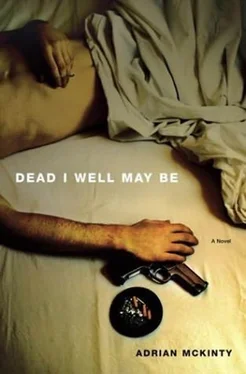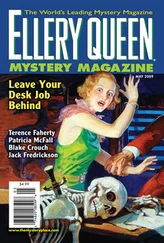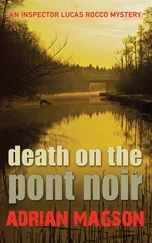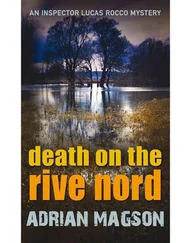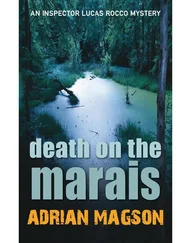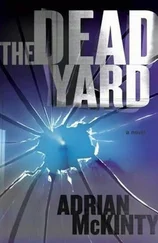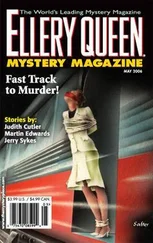Since most of the boys spoke to one another in fast Dominican Spanish, I was more or less cast as an outsider from the beginning. No one made an effort to get to know me, and I got the impression that they believed that I was one of the boss’s whims and would be disposed of when (probably in a few weeks) Ramón tired of me. Since no one made an attempt to engage me in conversation, I took to wandering around the place when Ramón was in the bedroom or in his private study-the only two areas that were out of bounds. I often went out on the balcony for a breath of air, although the air was always a bit dodgy because of the huge sewage plant on 138th Street. I would have enjoyed a smoke, but I’d given it up. Back inside, the boys were chatting and ignoring me. Ramón’s bookshelf was interesting: about a thousand books, but fewer than a dozen had their spines broken. Clearly, when Ramón had come into money he’d bought the books all at once to fill out the bookcase, but whether they were a pose or he actually intended to read them I’m not sure.
So there’s me reading his books or having a breather outside; Ramón and José are in the study and the other lieutenants are making up baggies. Every day like the first day of school, awkward, unpleasant.
In Ramón’s organization, he had about two or sometimes three dozen people working for him on an informal basis. A core of five lieutenants, all Dominican: Sammy, Iago, Pedro, Moreno, and the number-two in the outfit, José. There were two bodyguards, one nineteen-year-old Cuban guy called Devo (like the band), though everybody called him Cuba, and another Dominican guy called Hector. Outside of these seven and me (who became formally the third bodyguard), the rest of the employees were all cannon fodder. At night, the lieutenants would make up the baggies in a lab Ramón had built himself at the back of his apartment-small and white, stinking. It wasn’t out of bounds, but the lieutenants saw it as their fiefdom and kept the bodyguards and even José out of there. In the morning, the lieutenants would distribute the baggies to the safety men, who would hold them, and then sellers would hit the streets. Once you’d bought a bag, you’d go to the safety man, who was in an alley or fake store, and if everything was cool, he would give it to you. For every one person selling the five- or ten-dollar baggies, there would be three others keeping an eye on the street and another man who accompanied you to the safety man. Typically, a seller could make about three hundred dollars an hour, up to two or three thousand a day. The seller saw about 5 to 10 percent of what he made, depending upon the caprice of Ramón’s lieutenants. I estimated that Ramón was probably taking in sixty thousand a week. I don’t know if he had to pay off anyone or what exactly his expenses were, but clearly it was a bloody gold mine.
No one seemed to have any moral qualms about selling crack to addicts who would prostitute themselves or steal or go to the lengths of robbing their own family and pawning their kid’s possessions to pay for the stuff. Ramón never seemed to give any lectures about not selling to kids or waifs or madmen, but then I don’t speak Spanish, so maybe he did.
Ramón owned a Mercedes, but he drove it himself, and there were very few extraneous expenses.
Ten days had gone by, and every afternoon I had reported for work and hung out doing nothing until evening and then gone home. I’d done bugger-all to earn anything, but I consoled myself with the thought that I had over a thousand dollars now saved, and because of all the plantains and rice and beans, I had gained about ten pounds and was getting stronger.
The time would come when I’d have to say goodbye to this purgatorial existence, when I’d have to do what I’d come to New York to do, but I figured I could build myself up for a wee while yet. Ramón had not revealed why he really wanted me around, and I was beginning to think that he really was just a whimsical eejit who had taken a shine to me.
I made my own routine, and I usually went over there at around one or two in the P.M. The mornings were my own, and sometimes I’d haunt the old places where I used to live in the city. I had a job to do, but I had to wait, not for a sign exactly, or an alignment in the heavens, but I had to know that the moment was right.
My favorite place in the late morning was 125th Street. None of Darkey’s boys would ever be down there, and for me it was old and familiar and I felt like a tourist now that I was living on 181st. 125th, badland and desperateland but almost a home. Sometimes I’d walk by Mr. Han’s Chinky, but I wouldn’t go in, and now and again I paid Jim a visit in the Blue Moon.
When I was feeling particularly good I would set myself projects. I’d try and do five parks in a day, or go from river to river. Or try to find the highest spot in Manhattan. One day I walked the entire length of Fifth Avenue for no reason at all. I was so late I had to call Ramón and tell him I wasn’t coming (Ramón, of course, didn’t seem the least concerned or interested). Fifth Avenue starts in abject poverty and dislocation in Harlem, but by the time you hit Central Park, you’re in the territory of millionaires and that stays with you all the way down to the Village. I didn’t stop in anywhere; I brought a water bottle and a hat and just walked. The canyons opening up and the people getting fancier and more white. Cats and stray dogs and rats disappearing and being replaced by pigeons only. Schoolkids at first in jeans and big jackets and then in blazers and ties. The soundtrack growing steadily all the while: crying radios and jackhammers and people and cars. I’d walked the whole length on a fake foot.
Impressed by this success, I did the walk of Broadway, too, but I had to do it over two days, and I only walked the Broadway that’s in Manhattan, for, of course, it goes up into the Bronx (and on to Westchester), but up there is too near the Four P., which was risky. Broadway isn’t so linear an ascent from chaos to civilization. It has its ups and downs, poverty rising and falling like a sine curve. It begins in water, and you can see animals and boats. And then south through park and project, black and Spanish and then black and then Spanish again. A crazy cinema. Bodegas. The Audubon Ballroom. A funeral swelling out from a Mormon church, sorrow seeping through the walls and out the windows. Then, below 120th it gentrifies as Columbia University breathes her love and influence into the surrounding streets, and then there’s life for a few blocks and below 99th it becomes the Upper West Side. All the way down Broadway through the theaters, brick stacks, construction sites, porno shows, shops, holes in the ground with the whiff of sulfur.
Yeah, those were three good days, and I was almost happy.
I saw Ramón the night after Broadway and asked him if there was anything he wanted me to do.
Nothing, he said.
I wasn’t satisfied with this. I was ready for something. Trouble, heavying, even a minor cutting-out expedition. But Ramón was all patience. Annoyingly so.
Get yourself strong. Relax, I’ll tell you when I need you, he said. Walk, move.
I did as I was bid.
I went everywhere. From river to river, from island to mainland and back. The PATH and the subway and the M4 bus.
I went to dour Saint Pat’s and I went to Riverside Church and the great Saint John the Divine, surely the holiest place in the city outside of Monument Park in Yankee Stadium. (For even a Mick who’s never seen a baseball game in his life has heard of Gehrig and Ruth and Mantle and DiMaggio.)
I went south, and I had a scare in the Upper East Side when I saw a boy I knew called Roddy McGee coming out of a bar on Third Avenue, so after that I avoided the Mick zones and the neutral zones and kept mostly to greater Harlem. But that was ok. I liked it there. I absorbed Harlem, I took it in and became part of it. I went all the way from the West Side Highway to the Triborough Bridge, from Sugar Hill to Manhattanville, from Washington Heights to Inwood Park.
Читать дальше
